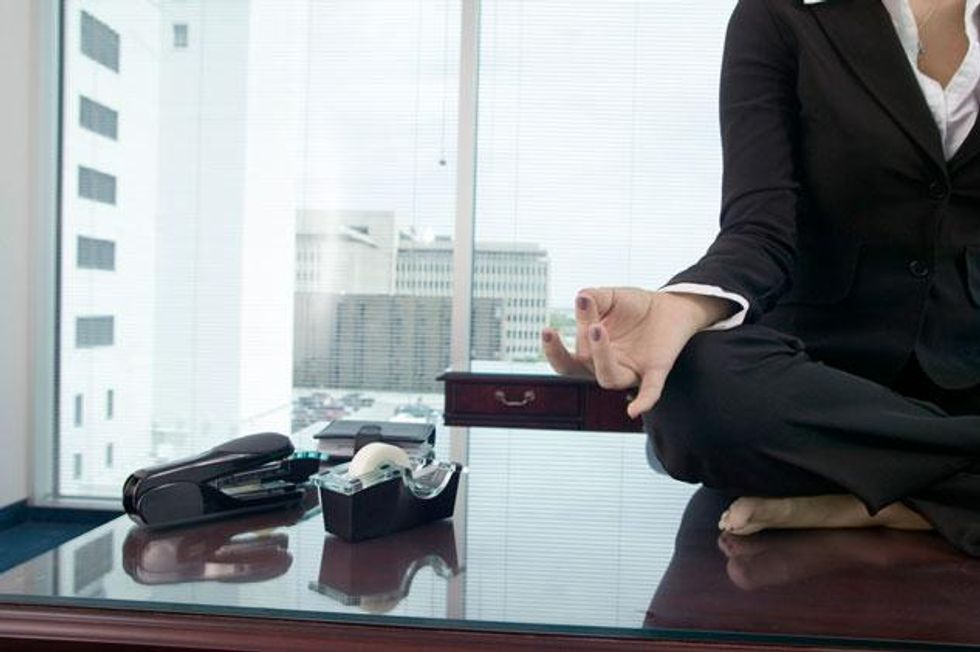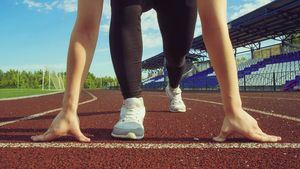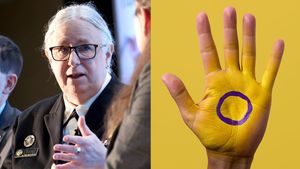Reducing your appetite for stress is a worthwhile long-term goal for anyone with HIV, according to Andrew Weil, MD, as “stress has been linked to all the leading causes of death, such as cardiovascular disease, cancer, accidents and suicide,” and nearly 90 percent of all primary doctor visits are for stress-related problems. But a weekly spa detox is a luxury that many can’t afford. We went hunting to find equally effective self-soothing methods that cost little to nothing.
Outdoor Exercise: When you live in an urban area or have an indoor desk job, you are very likely suffering from “Nature Deficit Disorder,” or NDD. People with NDD who begin to exercise outdoors in a natural environment become less agitated and have an easier time focusing. (Click here to read more about NDD and take our month-long challenge.)
Indoor Exercise: A full 90 percent of patients experiencing depression would not need therapy if they simply exercised regularly, according to a clinical psychologist with more than 20 years clinical experience (name withheld upon request). Stress, he says, has to go somewhere. Exercise releases the stress and gives you a boost of mood-enhancing endorphins. You can think of it as “natural morphine.”
Music: Lay off the Coldplay and Adele. Seriously. Keep your beats loud and happy. Research has shown that sad music can produce a low mood, while listening to loud, upbeat music cheers you up and distracts you from negative thoughts. Listening to music during your commute is a great way help you unwind. (Check out the HIV Plus Spotify workout mix here.)

Reflexology: Foot massage, or reflexology, is an ancient healing technique based on the principle that there are reflexes in the feet, which correspond to every part, gland, or organ of the body. Upscale spas charge extra for this, but small specialty foot massage shops are increasingly popular and inexpensive by comparison. If you want a cheap homespun alternative, buy a pair of foot-stimulating sandals and some Tiger Balm, and wear both a couple nights a week at home.
Organize Stuff: Cleaning and organizing provides distraction and a sense of control. If you’ve already organized everything you can, consider helping a friend or neighbor in need. Other organizational projects can become even more refined, such as creating the perfect craft drawer, or larger; and you can tackle more foundational goals, such as how the furniture in your dwelling place is (or isn’t) serving you.
Journaling: Writing helps the brain to solve problems, putting you in touch with your worries and feelings, and helping you process them in a constructive way.

Banish Negative Thinking: Mounting scientific evidence supports a theory that positive thoughts have power to change our biochemistry. By using “affirmations,” you leverage the brain’s natural adaptive capabilities by replacing unhelpful thoughts with more positive cognitions. For example, “I am always sick” becomes “I am growing stronger and better every day.” (Next month, we’ll provide 15 practical ways to get affirmations working in your everyday life.)
Acupuncture: An ancient healing technique, acupuncture is the underpinning of Eastern medicine. It’s well-known for its ability to relieve pain and stress, and promote a general sense of well-being. What’s more, each treatment builds on the previous ones. And the needles are (almost always) painless, so it’s worth a try.
Puppy Love: Did you know that your blood pressure drops when you pet a dog? Rescuing a pet also earns you good karma. Everyone wins.

Sex: Perhaps the greatest, most natural stress-buster ever, sex even burns calories. People in long-term relationships live longer, and those who have regular sex tend to be happier. Solo sex counts too. If you don’t feel sexually expressive, consider exploring any underlying issues.
Reading: Dipping into a good book prevents obsessive thinking by providing a distraction from negative thoughts. If you find it difficult to read (or don’t enjoy reading), explore the audiobooks at your public library. You can be “reading” a book while you commute or run errands.
Meditation: It may seem daunting, ethereal, and/or boring. But research indicates that mindfulness is an increasingly important skill across many different disciplines, and that people who meditate (even for a mere five minutes a day) receive tremendous benefits. You can download free guided meditation podcasts at MediationOasis.com on topics ranging from “Emotional Ease” and “Beyond Pain” or “Mini Break for Work or Study.” (The site also has a $3 meditation app.)


















































































